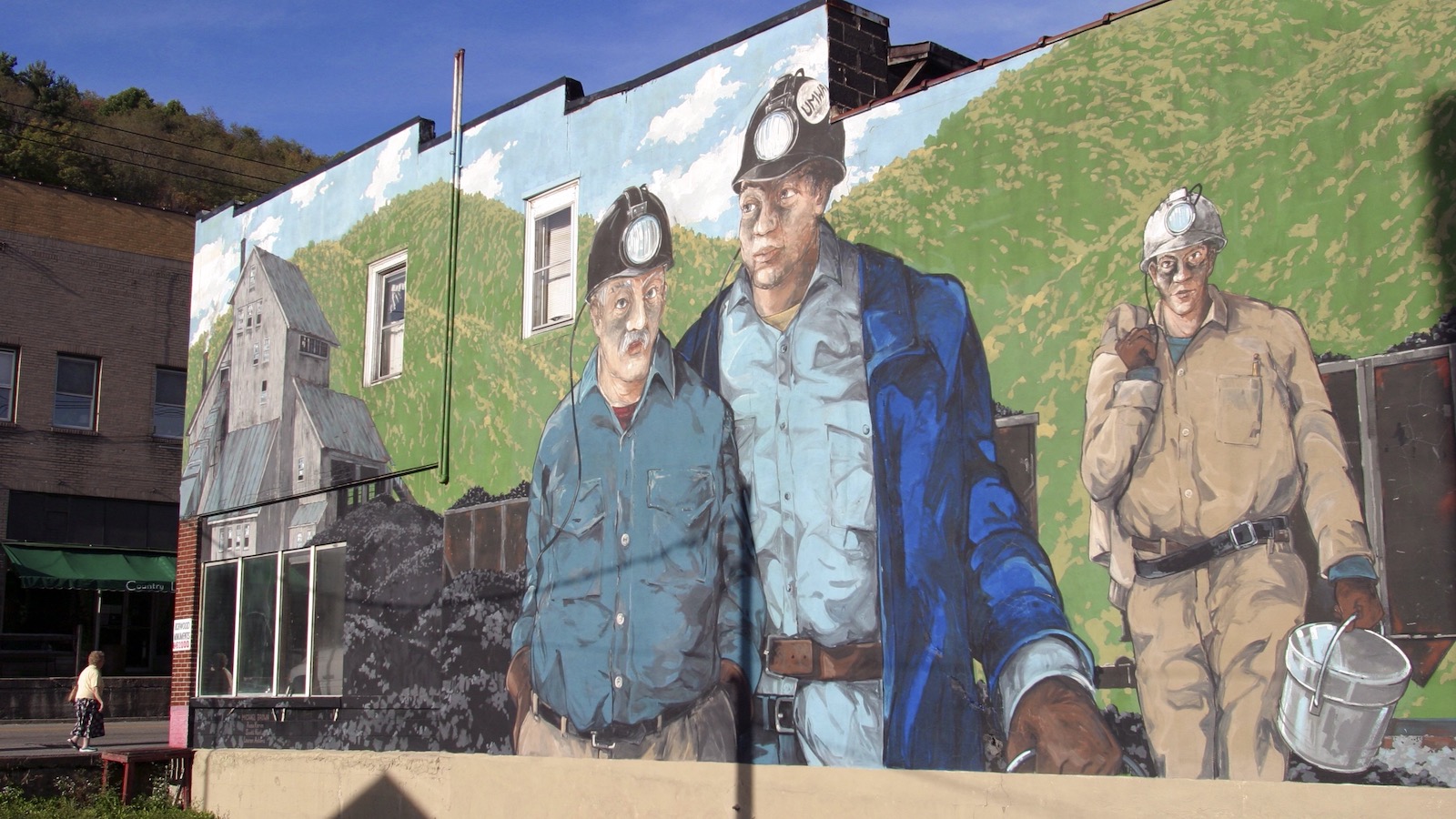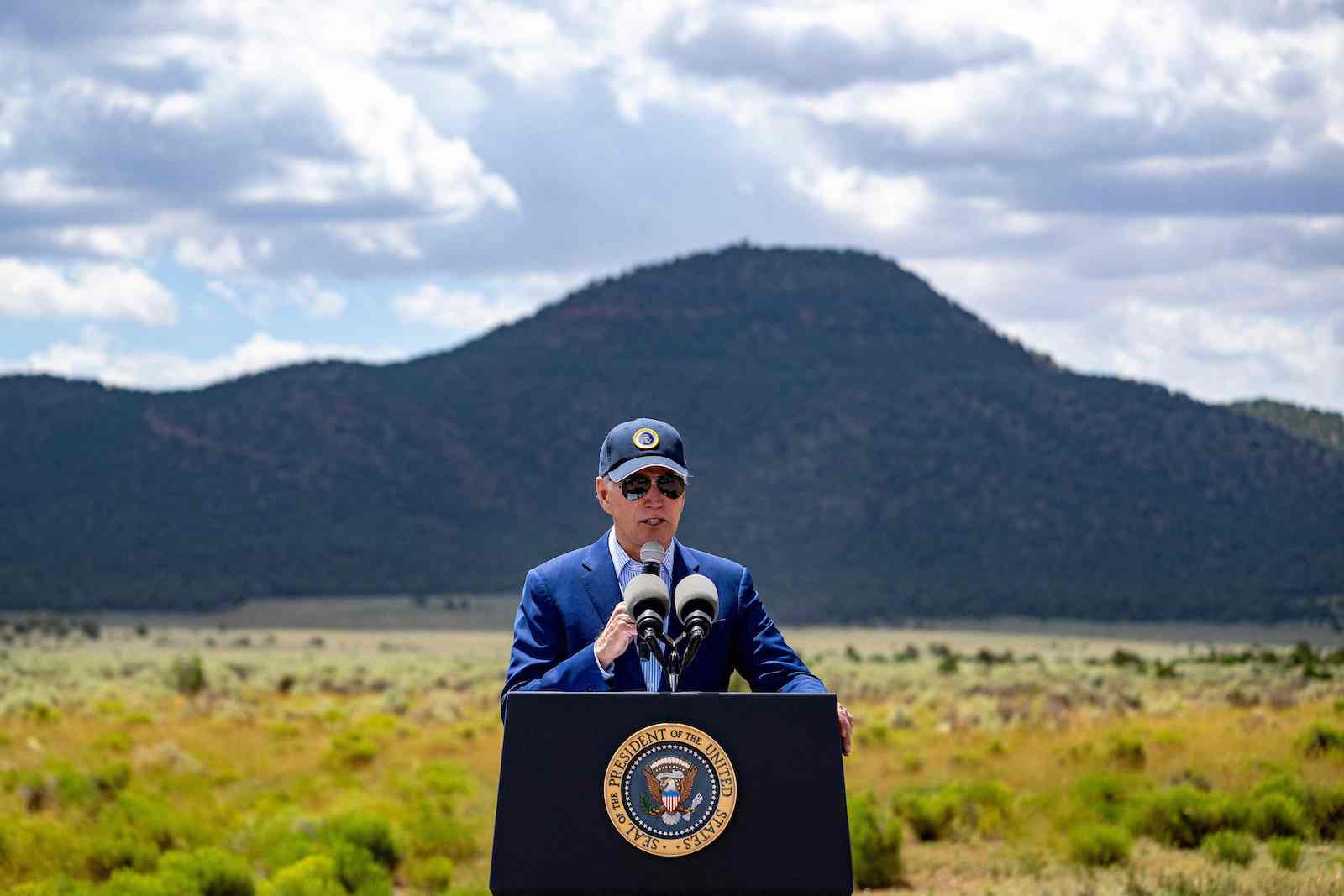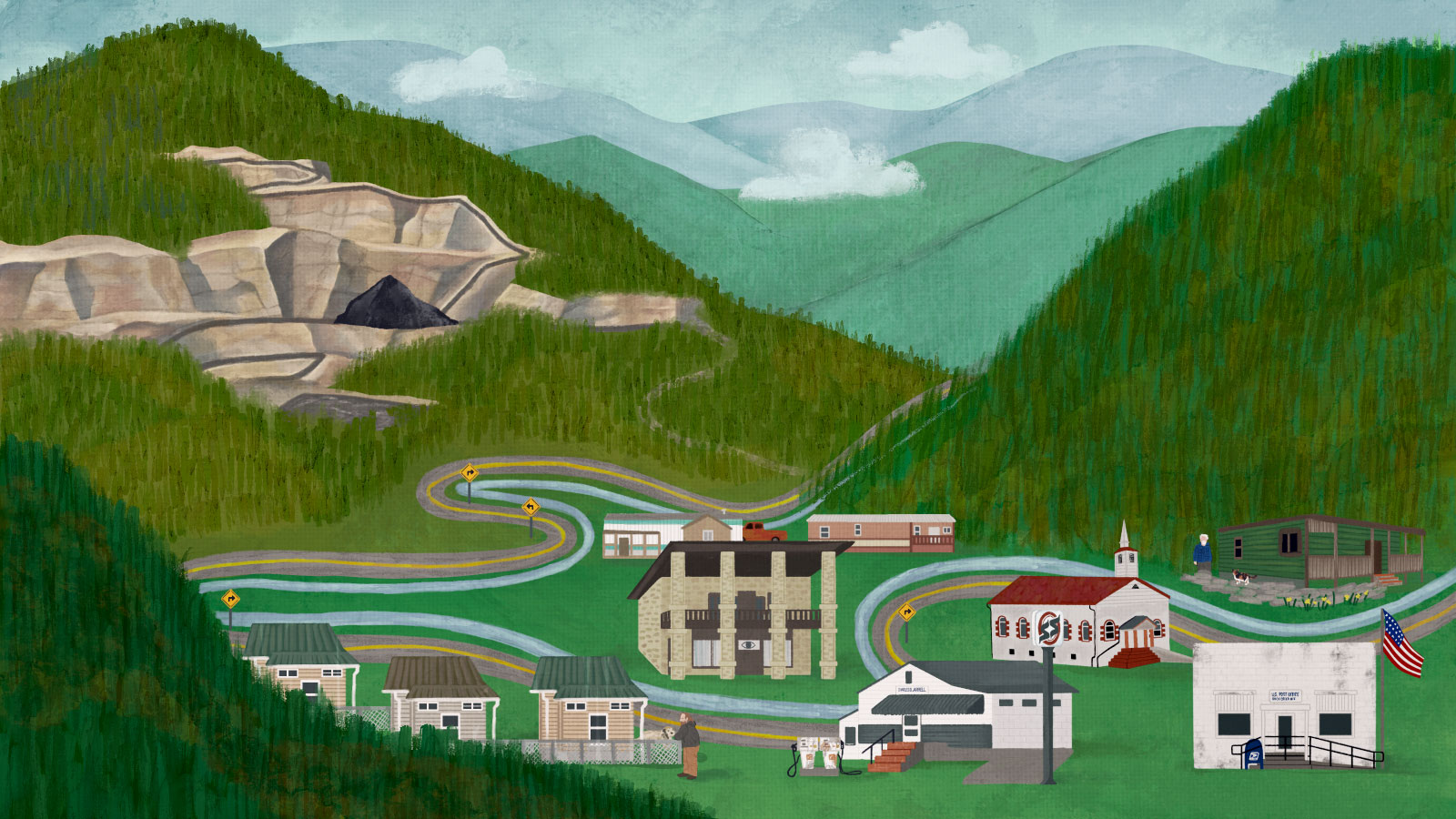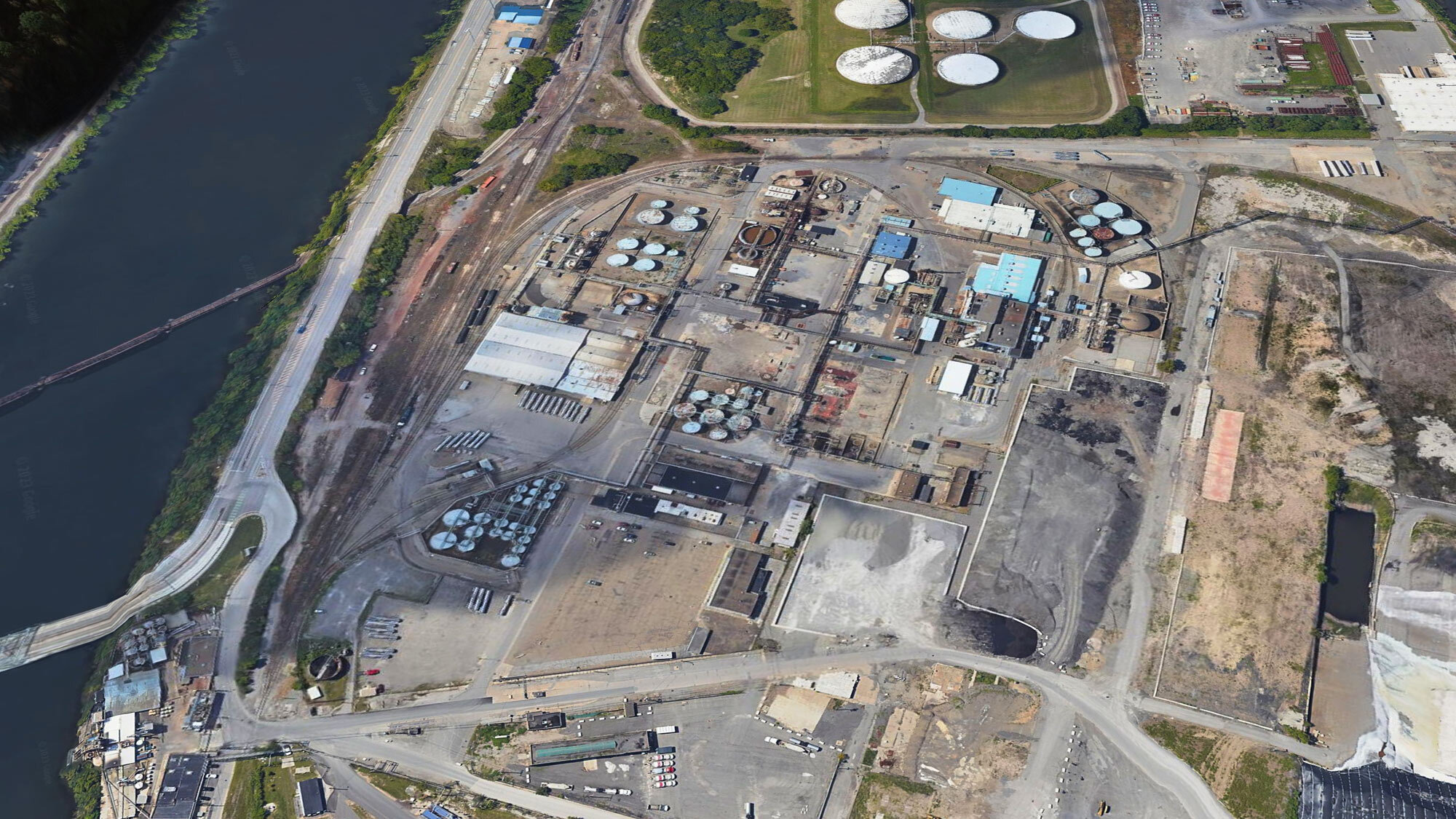A recent campaign ad targeting West Virginia Senator Joe Manchin shows the centrist Democrat standing alongside President Biden, applauding the passage of the Inflation Reduction Act. Ominous music plays as the words, attributed to Biden, “I guarantee you we’re going to end fossil fuel” splash across the screen. The spot, from a dark money group aligned with Republicans, paints Manchin as a flaming liberal happy to eliminate 100,000 West Virginia jobs in a ruthless pursuit of clean energy.
Manchin probably wouldn’t define himself as particularly liberal, nor would he consider himself an enemy of fossil fuels. The Mountain State’s senior senator has shown no reluctance to withhold votes on important legislation like the Build Back Better Act or demand concessions to support Democratic priorities like the Inflation Reduction Act. His ability to thwart President Biden’s agenda has given him, and Arizona Senator Kyrsten Sinema, outsize importance in Washington.
It’s in keeping with a path he’s walked throughout his political career, which included two stints as governor. Manchin embraces deep-blue labor interests and conservative business interests alike while beating his chest at environmental regulators, vowing to protect the state’s economy from those who would shut down Big Coal. He’s observing the anniversary of the Inflation Reduction Act in a typically two-sided manner. On one hand, he celebrated the law’s extension of benefits for disabled coal miners and its reduction of medical costs for seniors. On the other, he promised an “unrelenting fight against the Biden Administration’s efforts to implement the IRA as a radical climate agenda instead of implementing the IRA that was passed into law.”
Manchin is keenly aware that his political adversaries want West Virginians to see him as a liberal, and that he cannot allow them to succeed. He finds himself under threat by West Virginia’s sitting governor, Jim Justice, a Republican who is running for the seat Manchin has held since 2010. Justice, the state’s richest man, made his fortune as a coal executive and one of the nation’s largest grain producers, though he’s probably more well known nationally as a culture war populist who has patterned himself after Donald Trump. He loves to rail against political correctness and “wokeism,” he’s promised to deliver the biggest state tax cut in history, and he’s mastered the art of using levity to cut down opponents. He has no qualms about bringing out Babydog, his media-friendly canine, and inviting critics to “kiss her hiney.”
“Anybody that would hold up a bulldog’s behind to the camera at the State of the State,” Justice has said, “absolutely will just about do anything.”
Though Justice’s candid demeanor and populism may give him some appeal with voters, his honesty in business dealings and his commitment to worker safety is deeply suspect. He’s been sued more than 600 times by the Justice Department, business partners, vendors, government agencies, and others for millions of dollars in unpaid taxes, fines, and loans. Environmental groups have come for Justice over and over again for safety violations throughout central Appalachia and problems at his unreclaimed mines, including repeated floods and landslides that have long plagued a community in Pike County, Kentucky. Over the past five years, regulators have cited Justice’s companies for 130 environmental and workplace safety violations, and ordered them to cease all activity until about $8 million in fines are paid. Justice has ignored them.
Manchin does not appear to consider Justice much of a threat. “Make no mistake,” he has boasted repeatedly (including in a statement to Grist). “I will win any race I enter.”
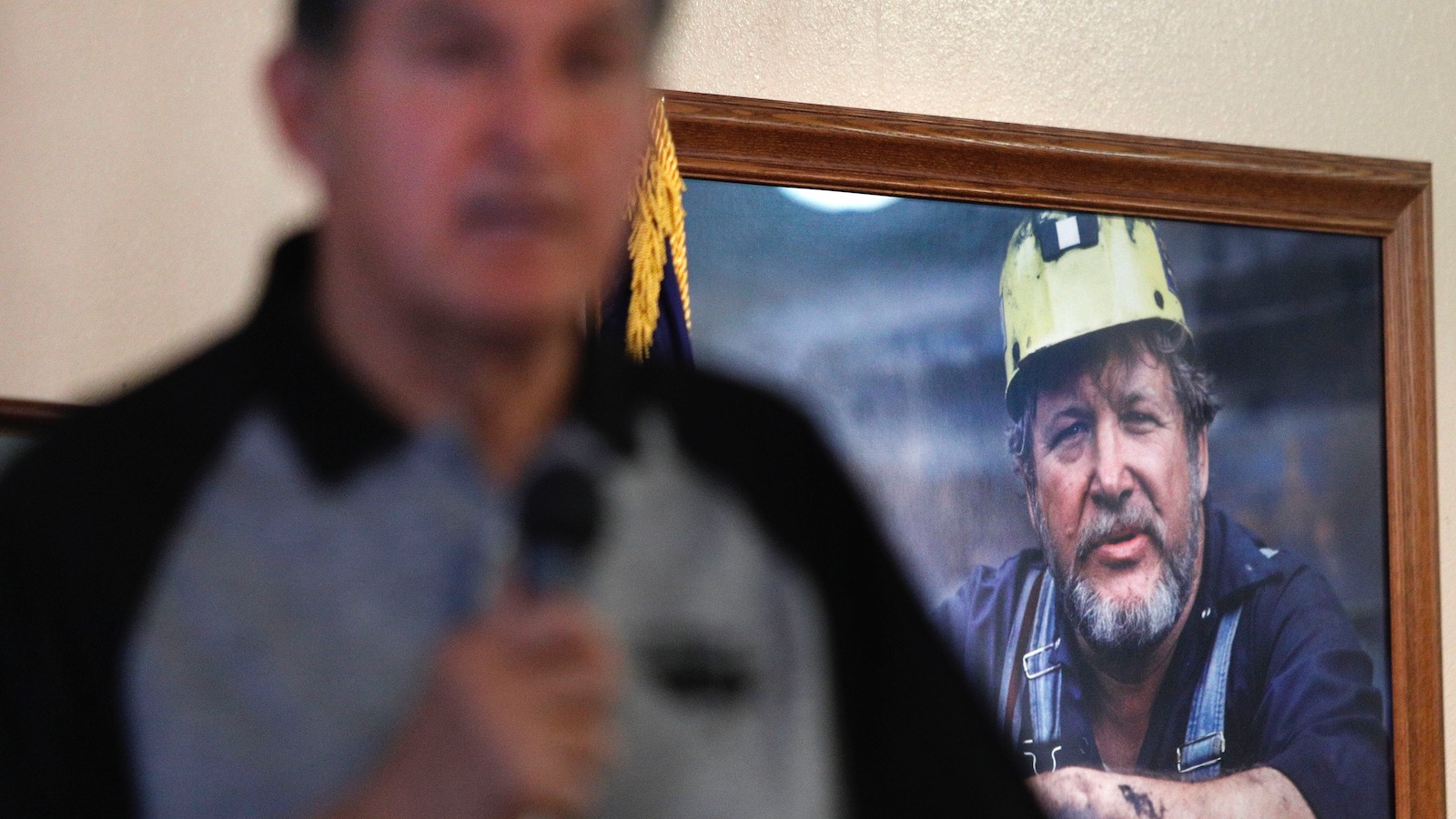
His confidence may prove unfounded. Machin’s popularity has waned as his once blue state has turned bright red. After winning three consecutive races by at least 30 percentage points, he squeaked through his latest by only 3 points. Worse, he’s polling poorly against Justice, whose approval rating is at 57 percent to Manchin’s 29 percent. Justice looks likely to beat his primary opponent, Alex Mooney, and challenge Manchin in 2024. The threat he poses to the seasoned Democrat underscores how the decline of coal and the rise of anti-environment, hardline Republicans has changed politics in West Virginia — and could reshape the last years of President Biden’s administration and the future of Democratic priorities.
“The West Virginia seat is Republicans’ best chance to flip a seat,” said political analyst Jessica Cook of The Cook Report. That could give the GOP a reasonable shot at a Senate majority, paving the way for more right-wing legislation, particularly in the climate arena.
A small but vocal contingent of West Virginia voters are outspoken in their frustration with this choice. They aren’t unaware of coal’s increasingly shaky future, or its impact on the climate. They feel trapped by what they see as a false dichotomy between candidates that regardless of party have kept the state in a holding pattern. The political movement WV Can’t Wait, which recruits and trains progressive-leaning candidates in hopes of turning West Virginia leftward, says many voters feel disempowered and equally fed up with Democrats and Republicans whose concern for their interests is limited at best.
“In West Virginia, we know that politics isn’t Democrat v. Republican, it’s the Good Old Boys Club v. Everyone Else,” the organization said in a statement to Grist. “In West Virginia, we know that the fight isn’t pro-Coal versus anti-Coal, it’s Coal Company versus Coal Miner.”
Mariah Clay, a young environmental activist from the coalfields community of Mingo County, calls the likelihood of a Manchin-Justice race “a slap in the face.” The way she sees it, the political power of both men stems from industries that have cost West Virginians their health and their safety.
“I’m sick and tired of it, having to choose the lesser of two evils,” she said. “Our land, and the well-being of our communities, are continuously sacrificed over and over and over again, for these cash cow projects that have nothing to do with us.”
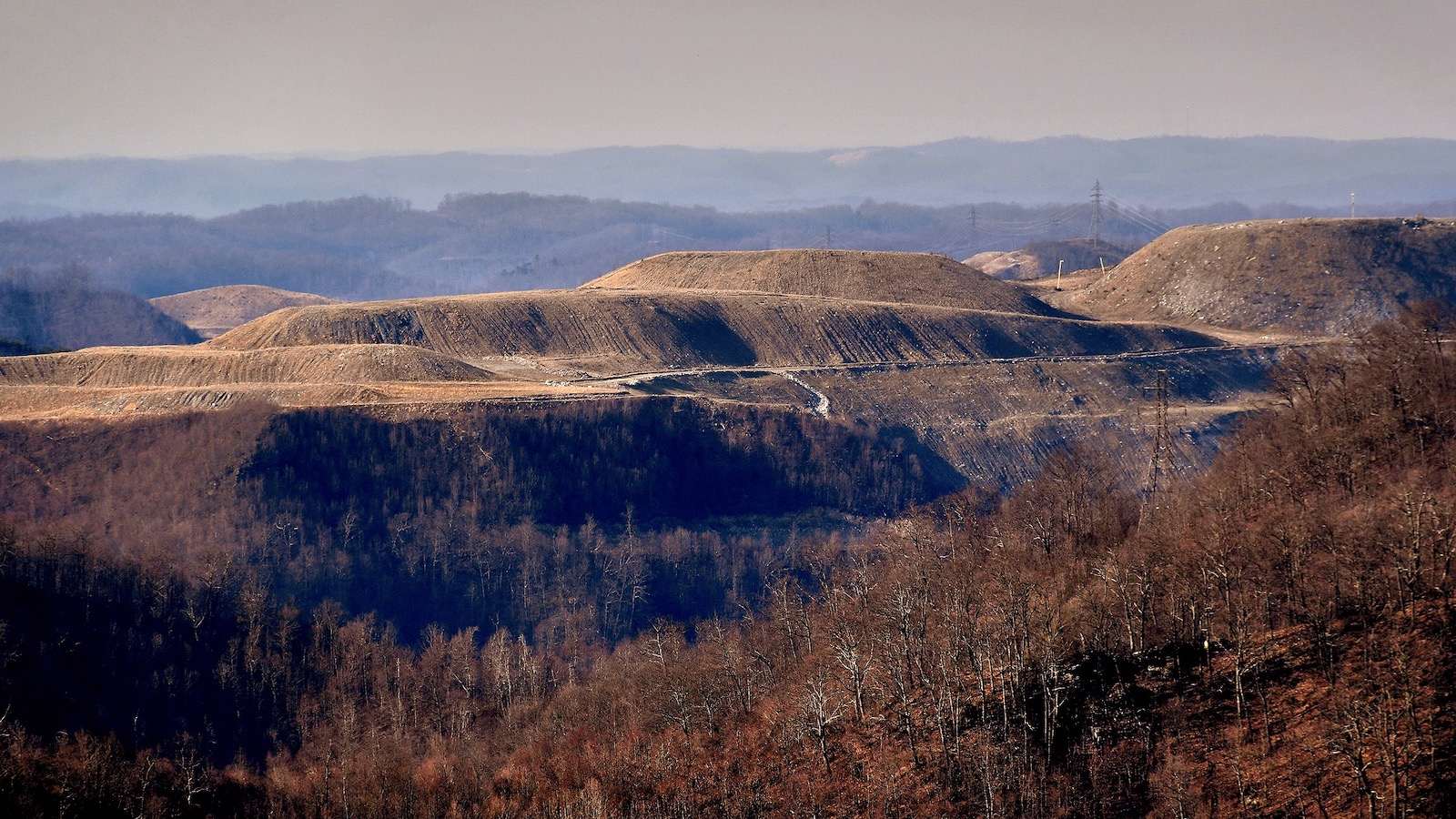
Like Justice, Manchin has amassed a fortune from coal. His family owns Enersystems, a company that sells a form of coal waste called gob that power plants burn for energy. His background has made him adept at walking the narrow bridge between playing nicely with miners while pleasing the industry they work for. Even as he took conservative stances on environmental regulations as governor, Manchin pushed for miners’ access to health care and a pension and allied with other Democrats to support measures that would prevent black lung, a deadly disease contracted through coal and silica dust exposure. But he also took the controversial step of privatizing the state workers’ comp system.
“Senator Manchin is probably the best example of someone who was able to sort of thread that needle, so to speak, about coal production,” West Virginia University historian Hal Gorby told Grist.
But the political environment in West Virginia that allowed him to do that has changed. Although the state has supported Republican presidential candidates since 2000, Democrats largely had a lock on the governorship and the statehouse from 1993 through 2015. It has since become a GOP stronghold. This shift followed the emergence, in the early 1990s, of its stronger, more patriotic party line on the state’s most famous export, one conveyed in a campaign called “Friends of Coal.” The fossil fuel became part and parcel with faith, freedom, and firearms. The movement, and the party, gained greater support during the Obama administration, an era the industry and its political allies called the “war on coal.”
Still, the industry has seen its fortunes wane. Mechanization increased production for a time while slashing jobs, reducing the number of coal miners in West Virginia to fewer than 12,000. Production peaked in 2008 and has steadily declined ever since — by as much as 64 percent in Appalachia alone — as states retire their coal-fired power plants. This trend is one of the biggest reasons for West Virginia’s rightward tilt. Though some miners and their communities have spoken out against the environmental damage the industry wreaks, others embraced the party that continues promising to keep the mines open.
“It’s sort of framed as like, We’re going to either have a clean environment, or we’re going to have this sort of vibrant economy that’s, you know, going to pollute,” Gorby said.
All the while, national Democrats showed little interest in maintaining their foothold in West Virginia, instead focusing on urban centers and suburban voters.
It is against this backdrop that Justice emerged. The irony is he won his first governorship, in 2016, as a Democrat. He switched parties seven months into his term (during an appearance with President Trump), telling voters, “I can’t help you anymore being a Democrat.” His administration has taken to following the party line, criminalizing protests against fossil fuels, passing strict anti-abortion laws, opposing gun control, and more.
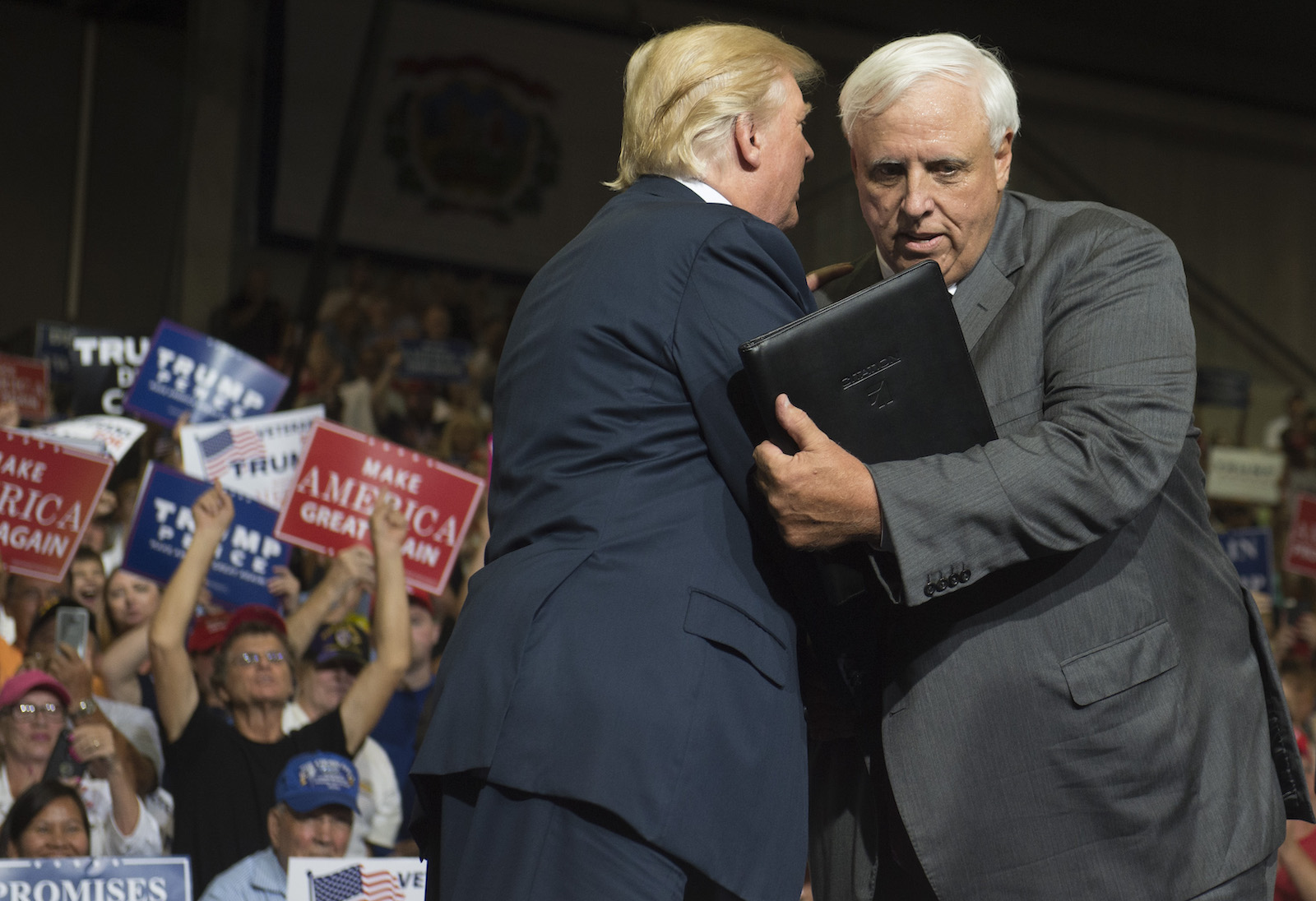
Though his role as culture warrior draws comparisons to Trump (whom Justice recently endorsed), former Massey Energy chief executive Don Blankenship may be the better analogue. Blankenship, a major player in the Friends of Coal campaign who contributed mightily to many conservative, anti-environment West Virginia candidates, ran for the Senate in 2018. He failed to survive the primary, undone by widespread condemnation of the lax safety measures that contributed to a deadly explosion at a Massey Energy mine in 2010. An investigation found that “Massey Energy used the leverage of the jobs it provided to attempt to control West Virginia’s political system.”
And that, ultimately, may be the clearest reflection of West Virginia politics, an arena in which politicians of both parties must be mindful of the state’s flagship industry, even if its best days are behind it.
Though some voters consider Manchin the lesser evil, Clay and others see both men more or less as the same result of the disenfranchisement and disenchantment of West Virginia’s voters and the continuing power of the coal industry and coal propaganda. Commentators often scrutinize the state’s politics, asking why so many of its residents appear to vote against their own best interests, and they often consider its elections a curiosity confined to the Mountain State. But what happens there often has national implications. And while some people argue that progressivism lies in wait, little will come of that until Democrats develop a strategy to improve the day-to-day conditions of West Virginians’ lives.
If Manchin stays in office, any deals the Biden administration makes to win his vote will be tempered with concessions to the fossil fuel industry. If Justice wins, though, there will be no deals at all. Justice’s comment about the best response to COVID-19 is equally apt here: “You’re dadgummed if you do and dadgummed if you don’t.”
Correction: This story has been updated to correct Jessica Cook’s title.

